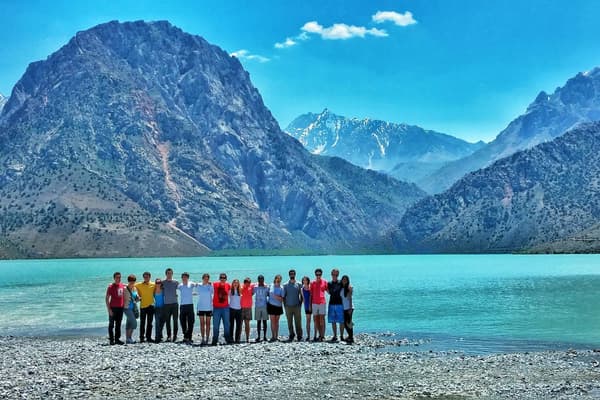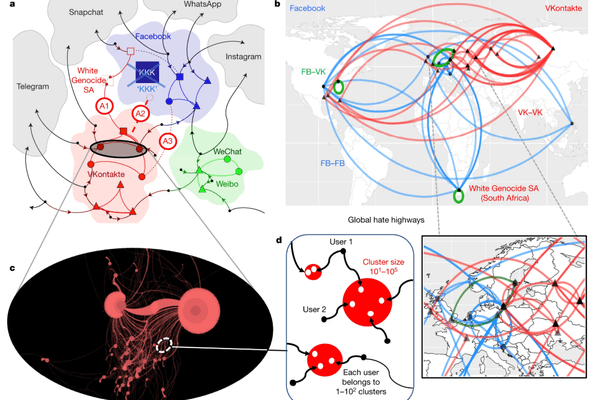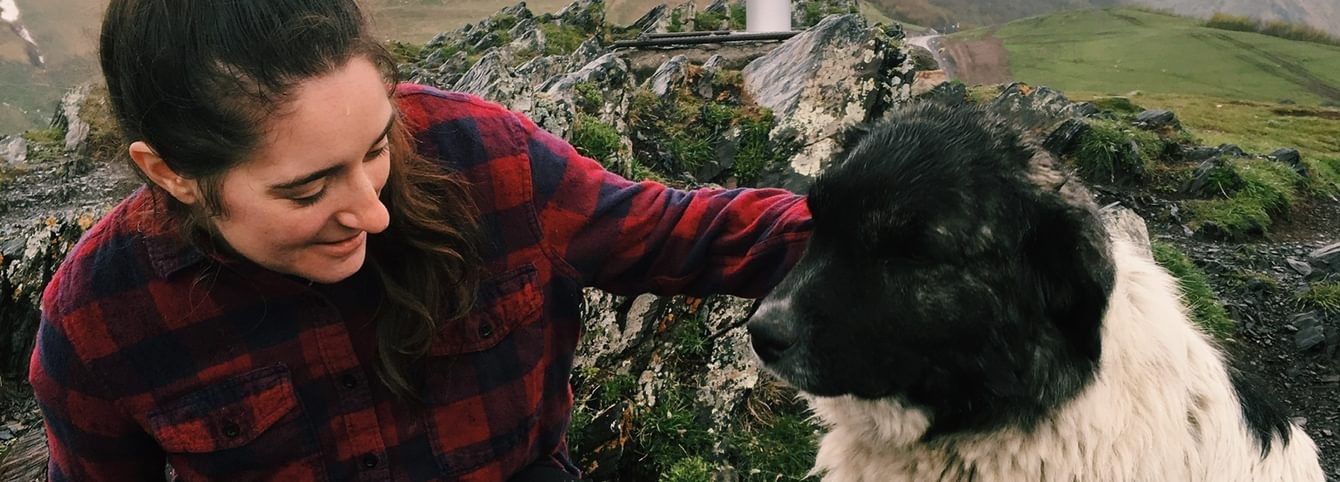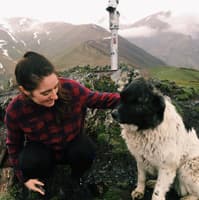Rhys Leahy
Rhys Leahy’s journey with Russian and Persian languages started when she participated in the NSLI for Youth Russian Program in high school for a year. While engaging fully in the culture, she became proficient in the language. The program site, Kazan, Russia is a historically Turkic and Muslim region, so many Persian-speaking international students traveled to Kazan to earn Russian degrees, which sparked her interest in Central Asia.
She participated in CLS Persian in Tajikistan after her freshman year of college, which opened several opportunities for her as a student. Using her language skills, she went on to intern at a Navy lab translating Russian documents about internet policy.
“I noticed that most of the official Russian policy documents focused on securing information channels rather than securing infrastructure, so I started to get more curious about information warfare.”

CLS Persian 2014 trip to Iskanderkul, Tajikistan
Because of her NSLI-Y and CLS experiences, she was eager to be involved in journalism and international news. Rhys then worked at NBC News as an election intern for Andrea Mitchell, NBC’s lead Clinton correspondent during the 2016 election.
“I started to see a lot of the research I was doing at the Naval Postgraduate School play out in real time during the election. That got me interested in how science, particularly data science, can help address some of the social problems arising from new information channels and technologies.”
Rhys has found a career that is the perfect combination of her language skills and her passion and expertise in data research. She is a Research Affiliate at George Washington University’s Institute for Data Democracy and Politics and a founding partner at a small alternative data start-up called ClustrX based in Washington, D.C. Her most recent accomplishment is a paper in Nature focused on quantifying group dynamics across internet platforms, which has yet to be done among social media researchers.

Figure 1: This model illustrates the online ecology of hate 'clusters' across Facebook and VK. The full paper can be accessed here: https://www.nature.com/articles/s41586-019-1494-7
“We started looking at extremist groups on Facebook like ISIS or the KKK and how they connect to a bigger online ecology. For example, a NSLI-Y group might connect to the State Department, or another international exchange group. Similarly, a KKK group might connect to other types of hate groups. We focus on the group structure, and if the content is so illicit that people might want to take it down, how they adapt through techniques like code words to avoid getting banned. Looking across different platforms is really important to identifying these adaptive techniques and how they evolve.”
Rhys’s team found that U.S.-based hate groups often moved to VK, a popular Russian social media network, and then returned to Facebook with their group names and other hate speech written in Russian to avoid detection. Using her language skills, Rhys was able to locate these groups, and study their structure and function. To conclude, they proposed four different intervention strategies for battling online hate.



